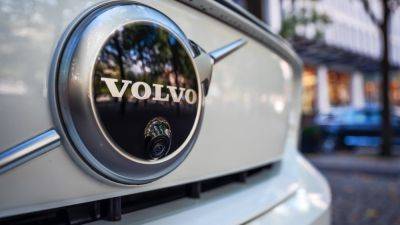Once the envy of the world, Germany's car brands now weigh heavily on its struggling economy
Germany's car industry was once recognized around the world for its high-quality, innovative internal combustion engine cars. Owning a German car was a luxury and status symbol. And carmakers were thriving, boosting the country's economy.
But the picture has since become bleaker.
The latest example is the developments at Volkswagen — which earlier this week said it was no longer able to rule out plant closures in its native Germany and felt it may need to end its employment protection agreement that has been in place in the country since 1994.
"For German carmakers that were the unchallenged technological market leaders in the sector for close to 140 years and barely had to worry about sales or competition, this is an unfamiliar situation," Andreas Ries, global head of automotive at KPMG, told CNBC in translated comments.
Now, the industry is undergoing its biggest transformation yet, he added.
Sentiment in the automotive industry has been choppy in recent years, historical data from the Ifo Institute shows. In August, sentiment pulled back once more to negative 24.7 points, according to data released Wednesday. Business expectations for the coming six months were "extremely pessimistic," Ifo said.
Volkswagen is not alone in its struggles.
In the latest set of earnings releases, the Mercedes car division cut its annual profit margin forecast, while BMW said its automotive segment profit margin in the second quarter was lower than expected. Porsche cut its 2024 outlook, albeit attributing that to a shortage of special aluminum alloys.
Issues in the automotive sector may also have spillover effects into the wider German economy, which has been teetering around — and in — recession territory throughout this and last year. In the







